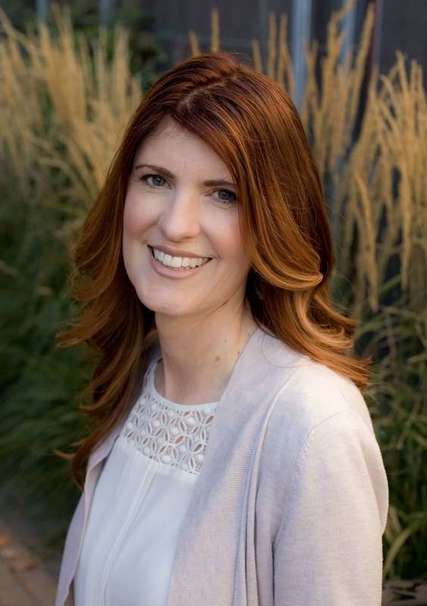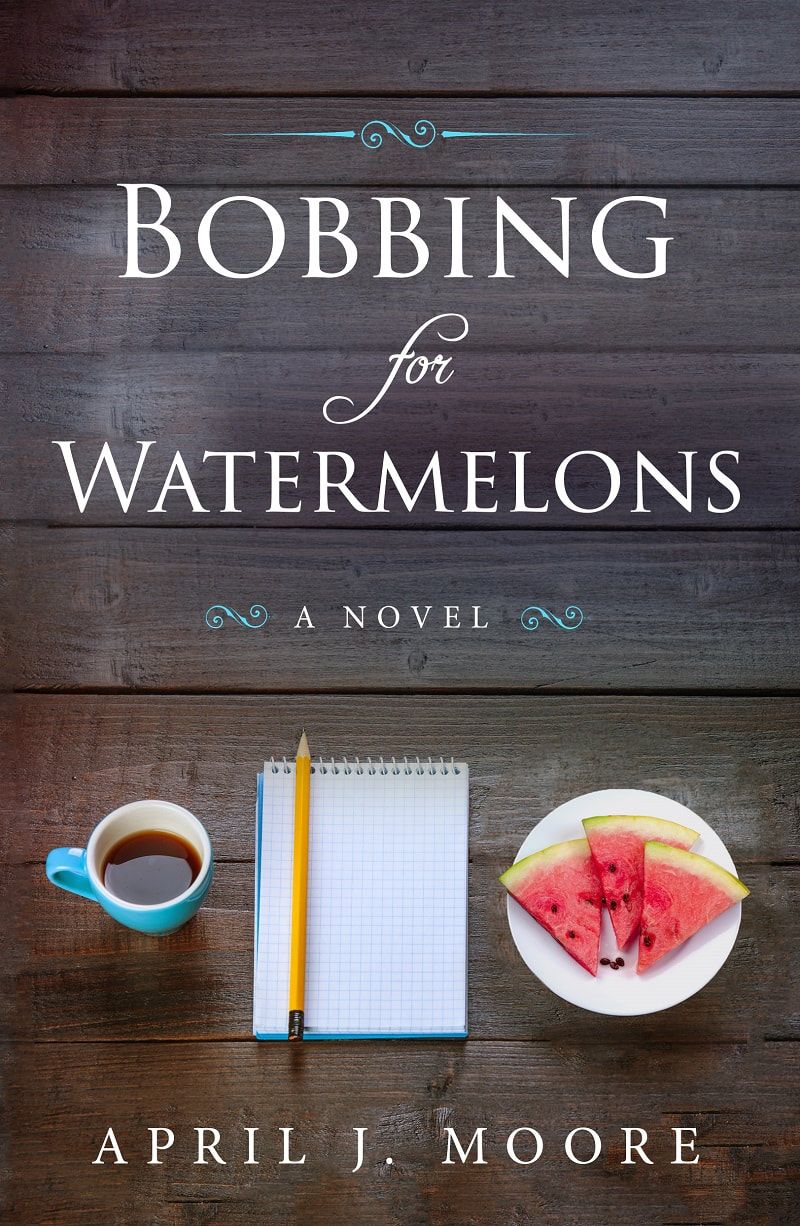 April Moore is director of Northern Colorado Writers and author of Folsom’s 93: The Lives and Crimes of Folsom Prison’s Executed Men, a historical nonfiction, and Bobbing for Watermelons, a novel. April’s other works, including an essay for the spring 2017 issue of Fort Collins Magazine, can be found on her clips page of her website Thank you, Amy, for the opportunity to guest blog for you and your readers today! I grew up reading mysteries and thrillers from authors like Christopher Pike, Agatha Christie, and I loved David Morrell. Interestingly enough, I don’t write mysteries; I wouldn’t even attempt it. I admire authors who can seamlessly weave together intricate plot twists and create page-turning intrigue. Quirky stories also drew me in. I was particularly obsessed with a short-lived television show in the late 80s/early 90s called Amazing Stories. It was created by Steven Spielberg, but each 30-minute episode was written and/or directed by well-known directors and writers and featured popular actors of the time. The stories were odd, wacky, supernatural, funny, strange, and just plain bizarre (to this day, I still don’t understand what Martin Scorsese’s was about). My early stories in middle school and high school were certainly influence by this program, however, my writing has evolved to more nonfiction, women’s fiction, and presently, contemporary young adult. Before this, however, my love for art detoured my writing and I majored in Fine Arts instead of English or Creative Writing. Blinded by visions of big city art gallery shows and an art studio filled with colorful canvases, I used my paper and pencil for drawing, not writing. I had a career in freelance art and my own greeting card business for ten years when writing decided it had had enough of being in the background. I took a novel-writing class in late 2003, helped form a critique group, and by 2008, I had finished my first novel. It was then that I closed my card business and focused on writing. After shopping the novel for a while, with little success, I shelved it. That’s when my first published book, Folsom’s 93: The Lives and Crimes of Folsom Prison’s Executed Men, became my focus for the next five years. The topic was far from whatever I thought I’d write. True crime? That stuff scares me. But the project sort of fell into my lap and I quickly became enthralled in the history and the stories of these ninety-three men and their victims. It also solidified my love of writing nonfiction. The book came out in 2013 and after rewriting much of that first novel, Bobbing for Watermelons, it was released two years later. While I found Bobbing (women’s fiction) easy to write, I’m discovering that getting into the head of a sixteen-year-old boy for my current young adult manuscript, is proving difficult. I have a nineteen-year-old son which has helped with initial character development, but thinking like a teenage boy is something well outside my realm of expertise. Despite this, I’m not giving up because I feel so strongly about telling his story. As much as I love writing, it doesn’t come easy for me. Writing is hard and we avoid things that are hard, right? I often tell myself I’m not “feeling it” and I find something else to do. As director of Northern Colorado Writers, an organization of writers of all levels and genres, I allow myself to get sucked into NCW tasks instead of focusing on my own work. Making time for my own writing is definitely something I need to work on. Reading books of varying genres always helps inspire and motivate me, but again, I have to make more time for it. One author I always have time for is the late Ivan Doig, who wrote literary fiction. I get lost in his clever prose, the lives of his beautifully crafted characters, and original plots. His passing over two years ago, devastated me. I’ve been spacing out his fifteen or so books so I don’t finish them all too soon. I’ll likely read them all twice. Elizabeth Gilbert’s Big Magic, is one my favorite books as well and is a must-read for any writer, particularly ones who are struggling with capturing and cultivating their creativity. Writing is a unique individual journey for every writer, but being a part of a writing community, or even just a critique group, is, I think, vital to a successful writing life. It’s how we grow our skills, find inspiration, and most important, discover a sense of belonging. I always encourage writers, no matter where they are in their journey, to seek out writing events, classes, and groups because they’re more likely to stick with their passion for writing and storytelling, than if they had gone it alone. Find your tribe and you’ll find a fulfilling writing life. Bobbing for Watermelons In the small town of Brookwood, Iowa, forty-one-year-old food columnist Helen Munson, unappreciated by her two teenagers and her lazy husband, longs for more out of life, but hasn’t a clue how to make that happen. In fact, her tendency to overreact and put herself in embarrassing situations sabotages her own efforts to assert herself. Helen impulsively starts writing a spy novel whose main character exudes traits Helen tries to embody in her own life: power, assertiveness, and the ability to kick butt. However, this persona doesn’t quite manage to keep her out of trouble, or jail. With help from a cast of quirky characters, such as her hippie best friend, a free-spirited drifter, and a pair of fashionable gay store owners, Helen just might be able to pull of the transformation of a lifetime. Where to Buy Bobbing for Watermelons
0 Comments
Leave a Reply. |
AuthorI'm generally pulled in a million different directions and I wouldn't trade it for the world. Here's a glimpse of my life - hope you enjoy it! And if there's a big lapse between posts, well, that's the way life goes in Amy's world. Archives
October 2022
Categories
All
|
|
Copyright 2024 by Amy Rivers. All rights reserved. |
 RSS Feed
RSS Feed